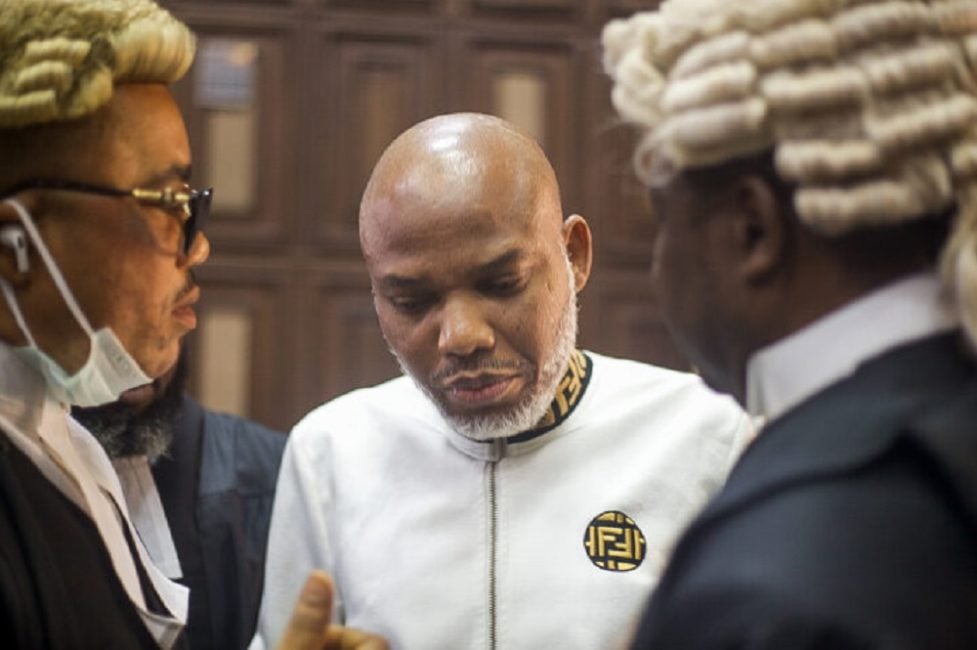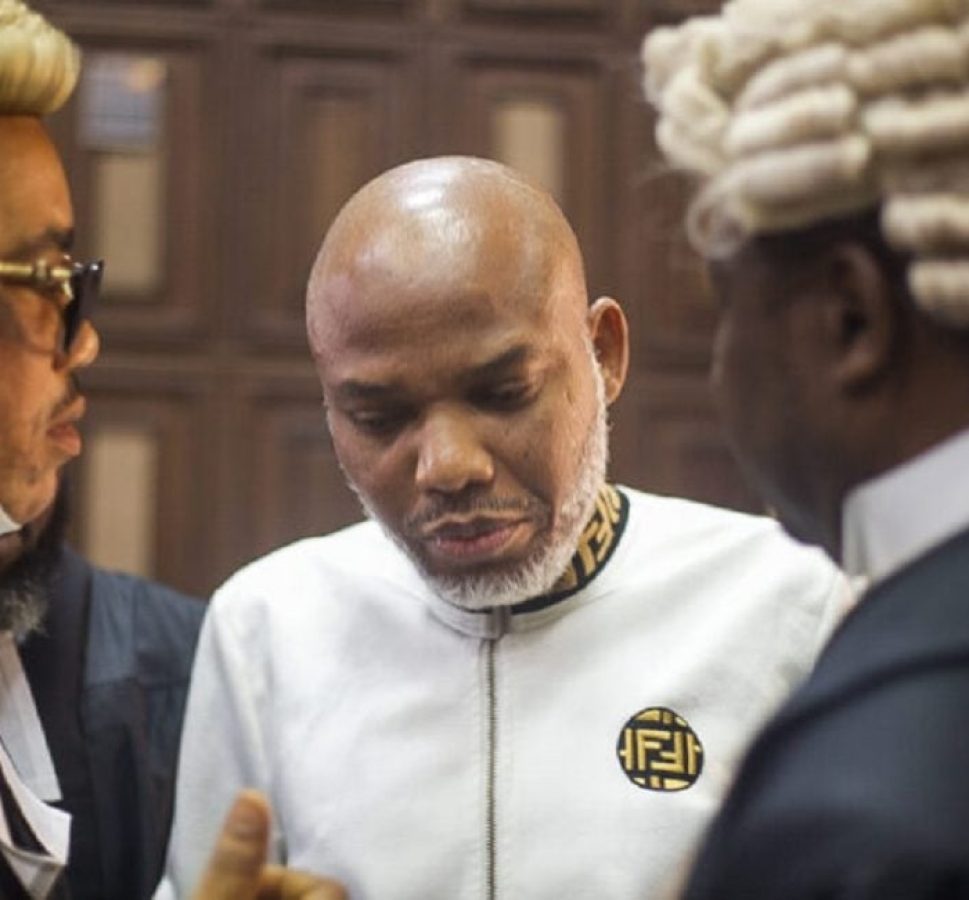
Justice James Omotosho of the Federal High Court in Abuja had on Monday dismissed the suit for lacking in merit.
The leader of the Indigenous People of Biafra (IPOB), Nnamdi Kanu, has vowed to appeal the judgment of the Federal High Court sitting in Abuja, which dismissed the fundamental rights suit he filed before the court against the Nigerian government.
Justice James Omotosho of the Federal High Court in Abuja had on Monday dismissed the suit for lacking in merit.
Justice Omotosho said that Kanu failed to provide evidence to sustain his claim that the Nigerian government, the Attorney General of the Federation and Minister of Justice, the Department of State Services (DSS) and its Director General, listed as defendants, violated his fundamental rights.
Reacting to the ruling, Kanu’s lead counsel, Barrister Aloy Ejimakor, told SaharaReporters that the IPOB leader’s legal team was already preparing a notice of appeal, noting that the ruling of the Judge did not reflect the realities of the case.
He said, “I am already preparing the notice of appeal. The evidence submitted before the High court was legion. Some of it are even in the public domain. The ruling of the judge does not reflect the realities of the case.”
Recall that Kanu had, in the suit marked FHC/CS/1633/2023, claimed that the DSS and its Director General violated his right to a fair hearing by allegedly preventing his lawyers from having unhindered interactions with him to prepare him for his treason trial.
The IPOB leader alleged that DSS officials eavesdropped on his conversations with his lawyers, which constituted a breach of his right to a fair hearing, adding that DSS operatives did not allow his lawyers to take notes during pre-trial meetings with him.
Kanu prayed the court to make “a declaration that the respondents’ act of forcible seizure and photocopying of confidential legal documents pertaining to facilitating the preparation of his defence which were brought to him at the respondents’ detention facility by his lawyers, amounted to a denial of his rights to be defended by legal practitioners of his own choice.”






